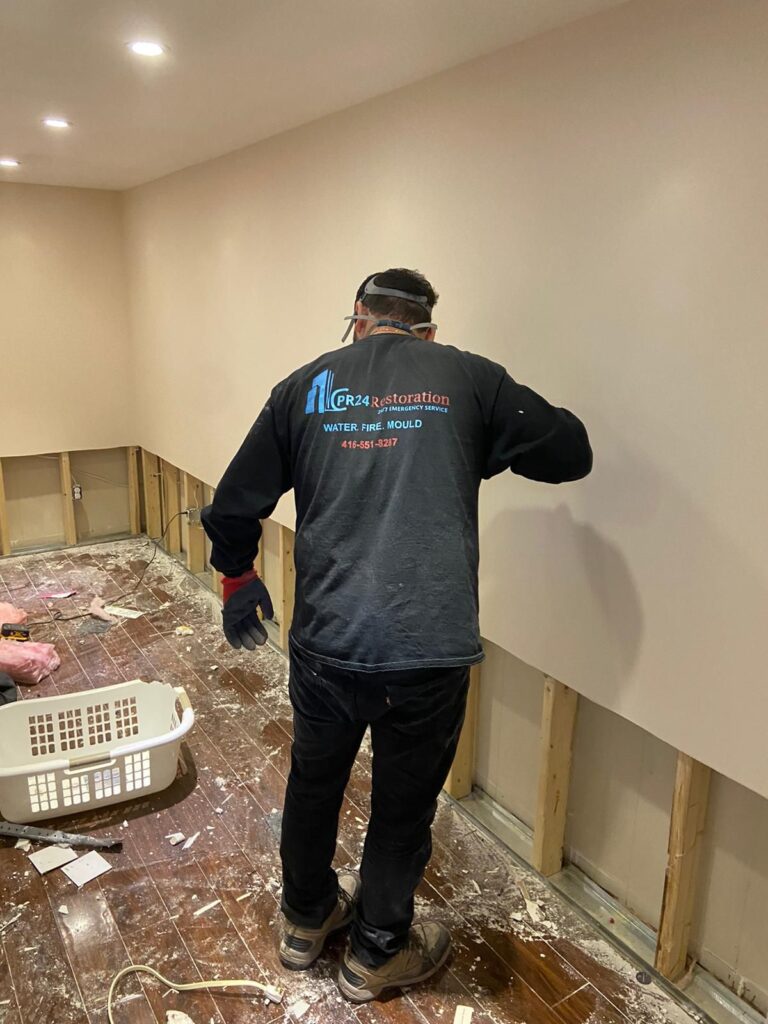
Do Frozen Pipes Always Burst?
Cold weather and low temperatures can make us feel quite uncomfortable for a variety of reasons. Some homes may experience water damage issues that probably can come from frozen pipes and increase the level of discomfort. But do frozen pipes which are exposed to cold weather always burst?
Frozen pipes do not always tend to burst, however, in case of freezing the risk of bursting is significantly increased. Exterior piles and pipes inside exterior walls, along with exposed pipes running through unheated or uninsulated spaces like attics or basements, are typical high-risk places for freezing.
CPR24 restoration can suggest you some steps that you can undertake to identify signs of frozen pipes and eliminate any upcoming risks.
Why Do Pipes Burst?
Low-temperature exposure over a long period can make pipes burst. This is extremely true for pipes which are positioned on exterior walls. When any trapped water or liquid freezes and starts to expand inside a frozen pipe, it is likely to break. As a result, the pipe’s pressure starts to increase. The liquid will continue to grow and eventually burst the pipe at its weakest spot if the temperature stays below freezing.
But you may wonder if this situation will make pipes burst. The answer is no only if you pay special attention and efficiently maintain them. That is the only solution if you want to minimize a burst risk.
Which Are Some Signs of Frozen Pipes?
Frozen pipes can contribute to a source of problems and can cause major damage to your property.
Some of the freezing pipe signs can be:
- Limited Water- One of the most frequent signs that you may notice is the lack of running water.
- Bulging Pipes- When water freezes, the expanding water molecules create intense pressure that can cause a pipe to visibly bulge.
- Gurgling Sounds- If you hear banging or gurgling noises coming from your pipes, this may mean ice is moving through them and is “talking” to you.
- Condensation and Cracks- A pipe may be freezing if you observe a layer of moisture on it or minor surface cracks.
- Smelly Water- Your faucets typically start to smell like sewage when an outside sewer line freezes.
At What Temperatures Do Pipes Freeze?
Most pipes don’t freeze above 20°F since the insulation is at least relatively close to your residence and the water in the pipes moves when you open a tap. Even though we are aware that water freezes around 32 degrees, pipes are typically too close to a source of heat to freezing as soon as the temperature drops to that level. Since there is more common insulation on pipelines in locations where this temperature occurs frequently, this is not a strict rule. Pipes could freeze or burst at a slightly higher temperature during a freezing spell in a region that is generally temperate.
What Is The Time Frame for Pipe Freezing?
There isn’t any specific time period for pipe freeze. In this situation, temperature’s role is beyond crucial and obvious. During cold weather, the freezing time will be faster compared to warm weather. The key factors that determine the longevity of pipe freeze are the pipe location and insulation.
We are all aware that water can freeze at 32 degrees of Fahrenheit but the temperature that will make pipes freeze is not the same. Pipes have the ability to freeze when heat is transferred in the pipe to the air. As result, the surrounding air temperature has to fall below 32 degrees of Fahrenheit and start the freezing process.
What To Do With Frozen Pipes?
In general, nothing guarantees that your pipes will never burst during low temperatures and cold weather.
But there are some quick and easy steps that can fully protect pipes from freezing:
- Disconnect the primary water line
- Open the faucet that is fed by the thawed pipe
- Thaw any hidden pipelines
- Heat up any exposed pipes
- Avoid using certain tools when defrosting pipes
- Look for additional frozen pipes
- Hire a plumber
- Future freezing pipe prevention
Why choose CPR24 Restoration for Water Damage Restoration Services?
Water damage may occur anytime on our property and that’s why we have to properly check all the available areas where damage can be caused. In case you are searching for reliable water damage services, then you can address CPR24 restoration professionals anytime as they are using advanced technology equipment that will save your property from further damage.
Call CPR24 restoration at (416) 551-8287 or send a brief description of your water damage emergency to info@cpr24restoration.ca and let our water damage restoration crew immediately assist you!

